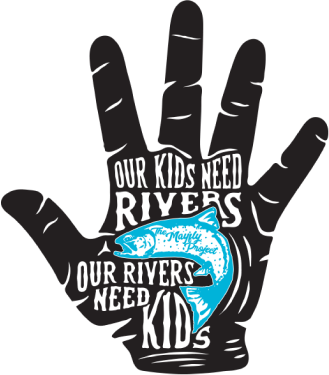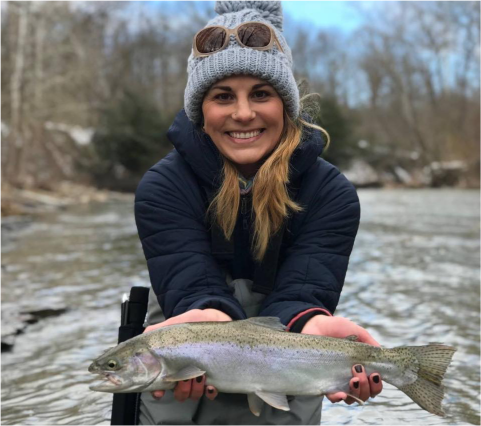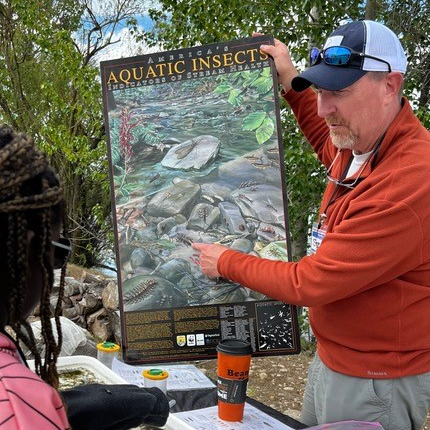Conservation
Positive Prints Initiative
During each project outing the children we mentor participate in efforts to restore local fisheries and their ecosystems. Our mentees learn that they can make a difference by leaving “positive prints,” whether it be properly handling fish, picking up trash, or by teaching others the importance of good stewardship!

Our Conservation Program Focuses On

Catch & Release
Mentees are taught proper fish handling techniques and are educated on the value behind the practice of catch and release.
Clean Rivers
Approximately 40 percent of the rivers in the U.S. are too polluted for fishing and swimming. Fish need clean water to survive; therefore The Mayfly Project strives to leave the river better than we found it. Teaming up with Fishpond, all mentees are provided with micro trash bins to keep our trash contained!
Contamination
Scientists believe that aquatic invasive species are one of the greatest threats to America’s trout and salmon. We educate mentees about this expanding threat and develop appropriate “gear-hygiene” so that we do not contribute to the problem.
Support The Mayfly Project’s Conservation Initiative
Environmental Scientist Partners
Katie Bartling
Katie Bartling is an environmental scientist; she specializes in projects focusing on ecological restoration and monitoring, wildlife habitat assessments wildlife habitat assessments, and wetland science. Katie has created our ‘protecting against invasive species’ section of our Conservation Initiative, including the information in our curriculum and our invasive species game we play with our mentees at outings. TMP is honored to have Kaite’s support and wisdom as we teach our mentees how to care for the fragile ecosystems we are privileged to enjoy.


Katie Bartling
Katie Bartling is an environmental scientist; she specializes in projects focusing on ecological restoration and monitoring, wildlife habitat assessments wildlife habitat assessments, and wetland science. Katie has created our ‘protecting against invasive species’ section of our Conservation Initiative, including the information in our curriculum and our invasive species game we play with our mentees at outings. TMP is honored to have Kaite’s support and wisdom as we teach our mentees how to care for the fragile ecosystems we are privileged to enjoy.
Environmental Scientist Partners

Stephen R. Moulton II, Ph.D
Aquatic Entomologist Biologist
Steve Moulton is a retired aquatic biologist and life-long angler with over 40 years of experience exploring the diversity, distribution, and ecology of aquatic insects and fishes. He earned a Ph.D from the University of North Texas where he conducted research on North American caddisflies. In 2022, Steve retired from the U.S. Geological Survey after a 25 year civil service career planning and operating National water quality programs. He is the Conservation Mentor for the Boise TMP and is now working with us to develop an activity where mentees can explore the diversity of aquatic macroinvertebrates and learn about how they are used to evaluate the health of aquatic ecosystems.
Conservation Mentoring
Each project has a designated “Conservation Mentor” who implements the conservation piece of The Mayfly Project throughout the outings.
The Conservation Mentor – is in charge of educating the group at each outing on the principles outlined below that encourage TMP mentors and participants to use conservation techniques and proper fish-handling techniques.
The goal of having a conservation mentor is to educate the children on how to care for their environment and for the fish they get to experience, with the goal that they will not only form a deeper connection with the outdoors, but they will be more curious about their environment and also begin to understand why it is essential we try our hardest to protect it.
Role includes doing a quick talk at the beginning of outings, setting up reward systems for those they see following the conservation outlines, working with TMP staff to provide needed materials that teach conservation and appreciation of the children’s local environments.
